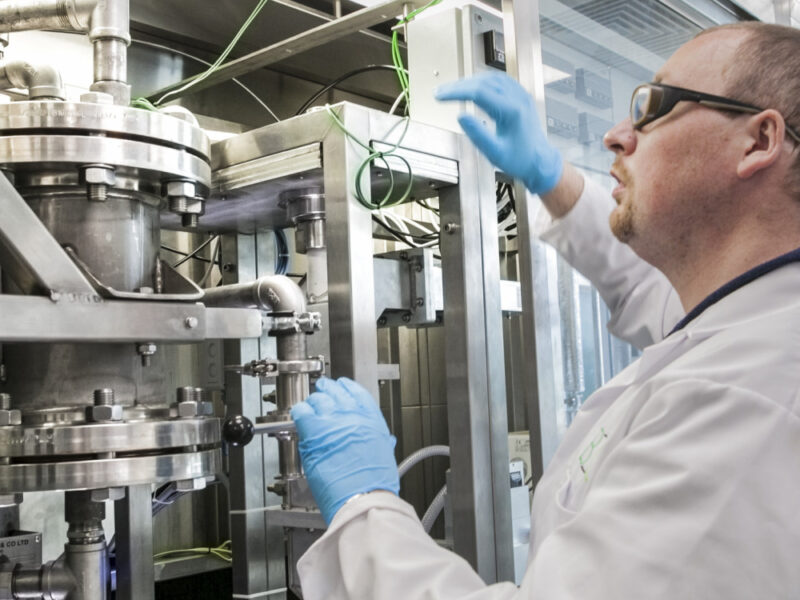CLEAR: Circular Liquid Effluent for Advanced Recycling
- Project lead
- Konstantinos Salonitis
- Institute
- Cranfield University
Summary:
When food security, material resources and environmental impact have become a primary concern, innovation is driving change with biotechnology emerging as a front-runner for creating solutions. Britvic PLC is one of the UK largest drinks manufacturers in the UK with a single factory producing 500 M litres of waste liquid containing up to 44 tons of sugars per annum. This resource is usually disposed of for water treatment, yet this sugar stream can enter the bioeconomy as a valuable feedstock to produce value-adding chemicals, fuels or even products back into the business. The bioeconomy sector is heavily impacted by economic feasibility, particularly from feedstock costs and process length. Britvic’s “waste” combined with disruptive technologies such as the continuous flow reactors at Cranfield aims to create a circular bioeconomy for Britvic to reuse their water back into manufacture, void of unused sugars and provide value from their waste through energy efficient low volumetric continuous flow reactors available at Cranfield University.
The project brings academic and industrial collaboration for advanced recycling of liquid effluent from beverage manufacturers. The focus will take effluent samples and analyse the contents before concentrating and evaluating a range of in-house strains that produce value-adding chemicals and fuels through bioconversion. The project will assess the bioproduction of lactic acid that can be converted into biodegradable packaging for Britvic or create bioethanol to provide greener fuels. If only 75% of the wasted sugar could be utilised it could amass 24 tons of Poly Lactic Acid. Further, managing the effluent in-house rather than sending it for wastewater treatment can potentially mitigate up to 55 tons of CO2e. The project’s first phase will assess conventional technology for feedstock feasibility in fermentation processes. However, the second phase will evaluate low energy low volume footprint process intensification reactors to enhance production rates and increase yields by comparing an oscillatory baffled flow reactor that has the potential to co-ferment and concentrate the effluent to high sugar levels in a one-line process.
This project is currently underway. Aims, objectives and impact will be publicised upon completion.
Academic partner: Prof. Konstantinos Salonitis, Cranfield University
Industrial partner: Dr. Yianni Alissandratos, Britvic PLC




